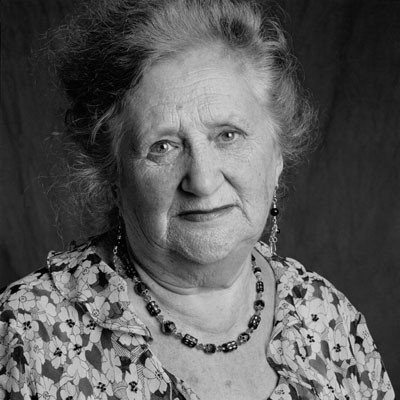
Olga Borochina
Memphis, Tennessee
Born: 1927 Mogilev-Podolskiy, Ukraine
Survivor: Mogilev-Podolskiy Ghetto
“In 1941, when Germany invaded, my mother, sister, and I were headed to Moscow. When we reached the train station, we were not allowed to board.” Within a week, recalls Olga Borochina, “everything changed. We had to wear Star of David patches on our clothing, post signs in front of our houses; we lost our jobs. We couldn’t walk our own sidewalks or visit the grocery stores. Not even our Christian neighbors would talk to us anymore.”
